As a BetterHelp affiliate, we receive compensation from BetterHelp if you purchase products or services through the links provided
Depression can be a significant obstacle in the job search process. Its symptoms, such as low energy, diminished confidence, and lack of enthusiasm, can make finding and maintaining work particularly challenging. However, it’s essential to know that suitable jobs are available for people dealing with depression, and it is possible to find a fulfilling, low-stress career to help support mental health.
Understanding the impact of depression on work is crucial when seeking employment. Choosing a job that aligns with personal strengths, provides flexibility, and promotes mental well-being is vital. Several potential career paths could be suitable for individuals with depression, and finding the right fit can make a difference in managing depression symptoms.
With the right tools and strategies, job seekers with depression can navigate their job search effectively, select appropriate career paths, and successfully manage their mental health. It’s essential to remember that although depression may present unique challenges, it should not exclude anyone from finding meaningful and fulfilling work.
Key Takeaways
- Depression can present challenges in the job search process, but suitable jobs exist for those affected.
- Understanding the impact of depression on work is crucial for selecting a suitable career path.
- Navigating job searches and managing mental health in the workplace is essential for people with depression.
 Understanding Depression and Its Impact on Work
Understanding Depression and Its Impact on Work
Depression and Job Performance
Depression, including major depressive disorder, seasonal affective disorder, and anxiety disorders such as generalized anxiety disorder, can significantly impact your ability to perform at work. When dealing with depression, you might experience persistent sadness, hopelessness, and a lack of interest in tasks, even those that were once fulfilling. This can lead to unproductivity and absenteeism, costing employers billions annually.
Depression affects your mood and can lead to cognitive and physical symptoms, such as difficulty concentrating, memory problems, and fatigue, all of which can make staying focused and productive at work challenging. Moreover, the stress of underperformance can exacerbate your symptoms, potentially creating a vicious cycle.
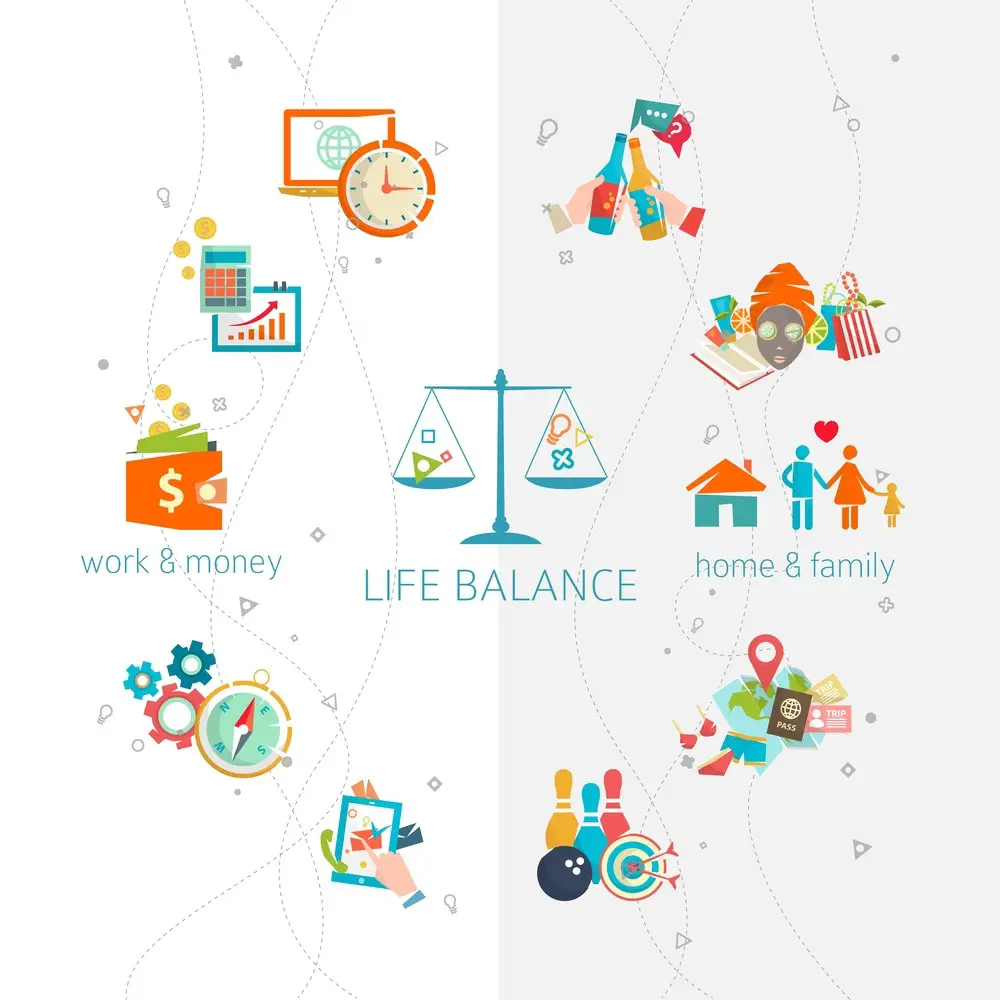
Work-Life Balance and Mental Health
Maintaining a healthy work-life balance is essential for your physical and mental well-being. An imbalance can exacerbate or even trigger anxiety and depression, making it even harder to manage your symptoms.
Setting boundaries between your work and personal life is crucial to promote better mental health. This might involve setting regular work hours, taking breaks throughout the day, and dedicating time for self-care and leisure activities outside of work. Remember, investing in your mental health can improve work performance in the long run.
 Recognizing Depression Symptoms at Work
Recognizing Depression Symptoms at Work
You must know the signs of depression and anxiety in your work environment. Recognizing the symptoms can help you seek early intervention and manage your mental health more effectively. Some common signs to look out for include:
- Persistent sadness or low mood
- Loss of interest in tasks, particularly those that were once fulfilling
- Feelings of hopelessness or inadequacy
- Difficulty concentrating or making decisions
- Changes in appetite or weight
- Sleep disturbances
- Fatigue and low energy
- Irritability or agitation
If you notice these symptoms affecting your work life, it’s essential to seek support from a mental health professional and consider discussing your situation with your employer. Early intervention can significantly affect your ability to manage your symptoms and maintain a healthy work-life balance.
Potential Career Paths
Considerations for Job Selection
When looking for a job as a person with depression, it’s essential to prioritize your mental health. You may want to seek careers that offer low-stress environments, flexible schedules, and opportunities for remote work. Additionally, consider whether the job caters to your interests, such as working outdoors, interacting with animals, or using your creative skills.
Exploring Low-Stress Jobs
For many, managing depression means seeking environments that nourish and support mental well-being. Workplaces play a significant role in this. Opting for a career path that minimizes stress and complements one’s needs can positively impact mental health. For those living with depression, here are some low-stress job options that not only provide a means of income but also offer therapeutic benefits:
- Park Ranger: Immersing oneself in the serenity of nature can be a balm for the soul. As park rangers, individuals engage in outdoor tasks and foster connections with nature. This role also offers the reward of educating visitors about the wonders of the natural world.
- Librarian: Libraries are havens of calm and knowledge. As a librarian, you assist patrons, curate collections, and oversee a peaceful environment. The calm and structure of libraries can be particularly soothing for some with depression.
- Dog Walker/Pet Sitter: The bond between humans and animals is undeniable. Caring for pets provides a sense of purpose, companionship, and unconditional love. It’s also a great way to engage in light physical activity, which is beneficial for mental health.
- Landscaping: The therapeutic benefits of gardening and landscaping have long been recognized. Creating and maintaining beautiful outdoor spaces allows one to connect with the earth, witness growth, and find satisfaction in tangible results.
- Postal Worker: A postal worker can provide a stable routine and a sense of community. Delivering mail and packages, engaging with locals, and being outdoors are just some of the benefits of this profession.
- Florist: Working with flowers, arranging bouquets, and interacting with customers in a relaxed environment can be a joyful experience. The natural beauty and fragrance of flowers can uplift spirits.
- Baker or Pastry Chef: For some, baking can be methodical and therapeutic. With the added bonus of delightful aromas, crafting pastries or bread can bring comfort and a sense of accomplishment.
- Bookstore Employee: Like a library, bookstores offer a serene environment filled with stories and knowledge. Recommending books and organizing shelves can be a satisfying task.
- Yoga or Meditation Instructor: Teaching others the art of relaxation, mindfulness, and physical wellness can be immensely rewarding. Not only does it provide an opportunity to share coping mechanisms, but it also allows for personal practice and growth.
- Professional Organizer: Helping others declutter and organize their spaces can provide a structured, clear-cut job that offers immediate, tangible results.
- Tutor: Assisting students in subjects you’re passionate about can be fulfilling. The one-on-one or small group settings can often be less stressful than entire classroom teaching.
- Music or Art Therapist: Combining a passion for art or music with the desire to help others can be fulfilling. Art and music therapy have been shown to help people process emotions, making this an impactful career choice.
Exploring Remote Career Options for a Balanced Work-Life
The digital age has unlocked many remote career opportunities, allowing for greater flexibility and the comfort of working independently. Diving into home-based jobs can be a game-changer for those prioritizing mental well-being and seeking a balanced work-life. Here’s a closer look at some of these roles:
- Freelance Writer: As a freelance writer, you can craft compelling narratives, informative articles, and engaging blog posts across myriad subjects. The job offers the advantage of setting your own pace, diving deep into passionate topics, and collaborating with diverse clients.
- Graphic Designer: This role is for those with an eye for aesthetics. Graphic designers conceptualize and create striking visual content for print and digital platforms. From brand logos to intricate banners and persuasive marketing collaterals, designers weave visual tales that resonate.
- Computer Programmer: Immersed in the world of codes, computer programmers sculpt the digital universe. Whether developing user-friendly apps, architecting intuitive websites, or crafting specialized software, programmers find solutions that enhance our digital experiences.
- Photographer: While traditionally an on-site profession, many photographers have leveraged the digital realm to their advantage. Apart from specializing in events or weddings, photographers can now venture into product photography, stock imagery, or even virtual shoots, editing their captures to perfection from the confines of their homes.
- Virtual Assistant: This role entails managing administrative tasks, scheduling appointments, and assisting businesses in their day-to-day operations—all from the comfort of home. It’s a role that requires excellent organization and communication skills.
- Online Tutor/Instructor: Share knowledge and expertise through virtual platforms. Whether it’s academic subjects, music lessons, or a hobby like painting, the digital world has made teaching and learning boundaryless.
- Digital Marketer: With businesses vying for online visibility, digital marketers strategize to boost brand presence across platforms, optimize content for search engines, and run targeted ad campaigns.
- E-commerce Store Owner: Platforms like Shopify, Etsy, and Amazon have democratized retail. Those with a knack for business can curate or create products, run their e-stores, and manage operations remotely.
By delving deep into these home-based professions, you’re not just seeking a source of income but crafting a lifestyle that prioritizes well-being, balance, and passion. As the world continues its digital shift, the horizon of remote work opportunities expands, offering a haven for those managing challenges like depression.
Making the Job Search Work for You
Crafting an Effective Application
The job search can be taxing for anyone, but it can be challenging if you’re coping with depression. To help alleviate stress and anxiety, consider breaking the process down into smaller tasks. Start by creating a checklist and timeline to manage each step. This can include updating your resume, tailoring cover letters, and creating a list of target employers.
When crafting your applications, highlight your strengths, accomplishments, and experiences that align with the job requirements. Consider using bullet points or bold text to emphasize important points. Remember, every aspect of your application should be tailored to the specific role and company you’re applying to.
 Interview Tips for Candidates with Depression
Interview Tips for Candidates with Depression
Preparing for interviews can cause stress and anxiety, especially those seeking jobs suitable for people with depression. To ease the process, follow these tips:
- Practice self-care: Make sure you’re well-rested, eating well, and getting exercise before the interview to help alleviate feelings of anxiety.
- Research: Understand the company and role you’re applying for. Knowing the organization’s values, culture, and expectations can help you feel more confident.
- Prepare your responses: Think about common interview questions and practice your answers. This can help reduce stress by making you feel more prepared and equipped to handle the interview.
- Schedule wisely: Avoid scheduling multiple interviews on the same day if possible. Allowing time for rest and reflection in between interviews can help you recharge and focus.
- Be honest: If you feel comfortable, consider discussing your mental health with the interviewer. This may lead to a better understanding of your needs and potential accommodations.
- Follow up: Send a thank-you note after the interview, expressing your gratitude and enthusiasm. Not only is this a professional courtesy, but it also serves as a reminder of your candidacy.
Combine these tips with an actionable timeline, creating a solid foundation to make the job search work for you. Remember that looking for a job takes time, and staying patient and persistent is essential.
 Managing Depression in the Workplace
Managing Depression in the Workplace
Requesting Reasonable Accommodations
It’s your right to request reasonable accommodations for your depression at work, as depression is considered a disability under the law. You should feel comfortable discussing your needs with your supervisor or human resources department. Possible accommodations can include flexible scheduling, allowing for downtime, or adjusting your workload. Remember that these accommodations support your well-being and enable you to perform at your best.
Balancing Professionalism and Self-Care
While at work, it’s essential to maintain a balance between being professional and practicing self-care. Develop coping skills to manage your stress and maintain focus on your tasks. Here are some suggestions:
- Therapy: Regularly attending therapy sessions can help you identify the sources of your stress and provide you with techniques to manage it.
- Medication: If prescribed by a healthcare professional, medication can alleviate some symptoms and help you maintain optimal mental health.
- Work-life balance: Prioritize your personal life and interests outside of work. This can help to reduce stress and improve your overall well-being.
- Health insurance: Use your employer’s benefits to access mental health support and services.
Remember, managing depression in the workplace is about adjusting your work environment and taking care of yourself. Proactively addressing your needs and seeking support can ensure your professional success and personal health.
 Benefits of Work for People with Depression
Benefits of Work for People with Depression
Finding Purpose in Work
For individuals with depression, finding the right job can provide a sense of purpose in daily life. You can find a meaningful and fulfilling career by focusing on your interests and personal strengths. Engaging in work that resonates with your passions may help you stay focused, making it easier to cope with depression.
Work and Wellness: Exercise and Vitamin D
Certain types of work can contribute to your overall wellness by promoting exercise and exposure to sunlight. For example, gardening, landscaping, or delivery services careers can allow you to spend time outdoors and achieve your fitness goals while being your own boss. This can increase vitamin D levels, which are essential for mood regulation and overall health. Additionally, regular exercise can boost your mood by releasing serotonin, a neurotransmitter linked to happiness.
Jobs that promote exercise and sunlight exposure:
- Gardeners
- Landscapers
- Delivery drivers
Careers Involving Animals
Jobs involving animals, such as pet care, veterinary services, or animal rescue, can benefit individuals with depression. Interacting with animals can ease social anxiety and offer a calming presence. By taking care of animals, you can find a greater sense of purpose and boost your mental well-being.
In summary, finding a suitable job that caters to your interests and strengths, promotes exercise and exposure to sunlight, or allows you to work with animals can be highly beneficial for people with depression.
Conclusion
In summary, finding the right job or career for people with depression can be a challenging but rewarding process. Several opportunities can cater to their needs and preferences, offering a supportive work environment and tasks that align with their mental well-being. Some jobs suitable for people with depression include freelancers, dog walkers/pet sitters, horticulturists, and roles within gardening, landscaping, or local gardening centers.
When considering a job, it’s essential to prioritize your mental health. Look for flexible positions, a work-from-home option, or a low-stress environment. Working in nature, such as in horticulture or with animals, can alleviate depressive symptoms while maintaining a productive and enjoyable career.
Ultimately, the perfect job for someone with depression may look different for each individual. Understanding your needs and seeking positions that cater to those preferences is crucial. By focusing on your well-being and exploring various career options, you’ll be one step closer to discovering the ideal job that supports your mental health and fosters personal and professional growth. Don’t be afraid to seek support and guidance during your job search, as friends, family, and mental health professionals can all provide valuable insights to help you on your journey.
Frequently Asked Questions

What are suitable careers for those with depression?
Suitable careers for individuals with depression foster a positive work environment, offer flexibility, and do not overwhelm with stressful demands. Some examples include freelance work, such as writing, graphic design, or video editing, and careers with structure and limited social interaction, like a librarian or archivist. Remember that each person’s experience with depression is unique, and finding the right job will depend on your circumstances and preferences.
Which jobs are recommended for individuals with mental health challenges?
Jobs recommended for individuals with mental health challenges generally promote stability and a sense of purpose. Some possibilities include animal-related careers due to the potential therapeutic impact, such as pet groomers or animal caretakers; creative or artistic roles that give an outlet for self-expression; and careers in mental health or social work, where you can help others facing similar challenges.
What are ideal occupations for people coping with anxiety and depression?
Ideal occupations for individuals coping with anxiety and depression balance manageable stress levels and meaningful work. Remote or low-pressure customer service roles, administrative positions without high-pressure deadlines, and outdoor or nature-focused occupations could be good options for people in this situation.
How can someone with depression maintain a stable career?
Maintaining a stable career while dealing with depression may involve several strategies, such as establishing a regular work routine, communicating openly with supervisors and colleagues about your needs, and seeking professional help in managing your mental health. It’s also essential to prioritize self-care, including adequate sleep, a healthy diet, exercise, and setting boundaries to maintain a healthy work-life balance.
What factors should be considered when choosing a job for someone with depression?
When choosing a job for someone with depression, consider factors such as the work environment, stress level, required social interaction, personal interests, and work hours. Remember that everyone’s experience with depression is different; a job that suits one person may not be the best fit for another. Exploring opportunities that match your strengths and mental health needs will help you find a suitable position.
Are there any workplace support systems or accommodations available for individuals experiencing depression?
Yes, support systems and accommodations are often available for individuals experiencing depression. Companies may have Employee Assistance Programs (EAPs) that provide mental health support, counseling, or resources. In addition, under the Americans with Disabilities Act (ADA), employees with depression may request reasonable accommodations, such as flexible work hours, additional breaks or time off, and adjustments to the work environment. Open communication about your needs with your employer can help ensure you receive the appropriate assistance for your situation.
About the Author: Jacob Maslow
Jacob Maslow is a fervent advocate for mental health awareness and a prolific writer on depression, narcissism, and the complexities of navigating the legal system. Drawing from personal experiences, including his commendable journey with Lexapro and therapy, Jacob provides a unique and empathetic perspective. He has faced the heart-wrenching challenges of a strenuous custody battle and the alienation tactics of an ex-partner with severe narcissism. Despite these challenges, Jacob seeks solace through daily therapeutic walks and remains deeply committed to maintaining a close bond with his two children.
His writings serve as a beacon of hope and guidance for those facing the maelstrom of mental health issues and the intricacies of legal disputes with non-cooperative ex-partners. Beyond sharing his story, Jacob offers an invaluable resource through his legal platform, assisting those grappling with unyielding spouses who defy court orders and prioritize conflict over co-parenting. With each article, Jacob aims to empower and inspire, reinforcing the belief that anyone can overcome their mental health challenges and navigate difficult personal situations with the proper support and determination.
- Breaking the Silence: Why Men’s Mental Health Matters More Than Ever - April 15, 2025
- How to Transform a Home’s Patio Space into a Relaxing Space - March 23, 2025
- 5 Strategies to Use a Cell Phone to Help Manage Your Stress - March 23, 2025
This site contains affiliate links to products. We will receive a commission for purchases made through these links.


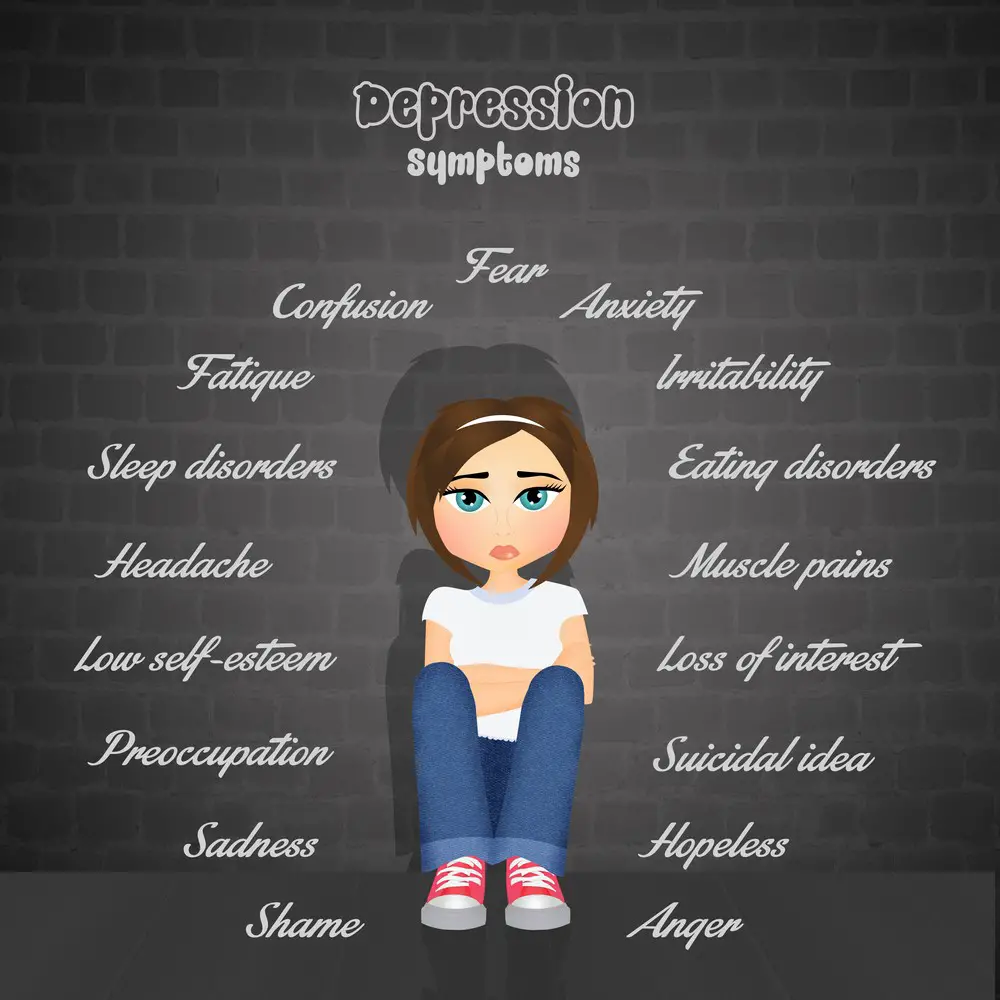 Understanding Depression and Its Impact on Work
Understanding Depression and Its Impact on Work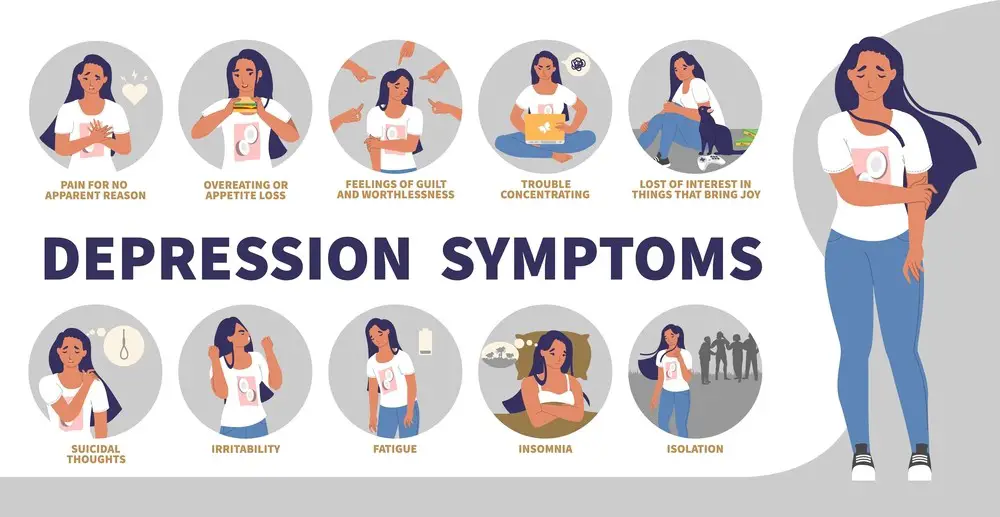 Recognizing Depression Symptoms at Work
Recognizing Depression Symptoms at Work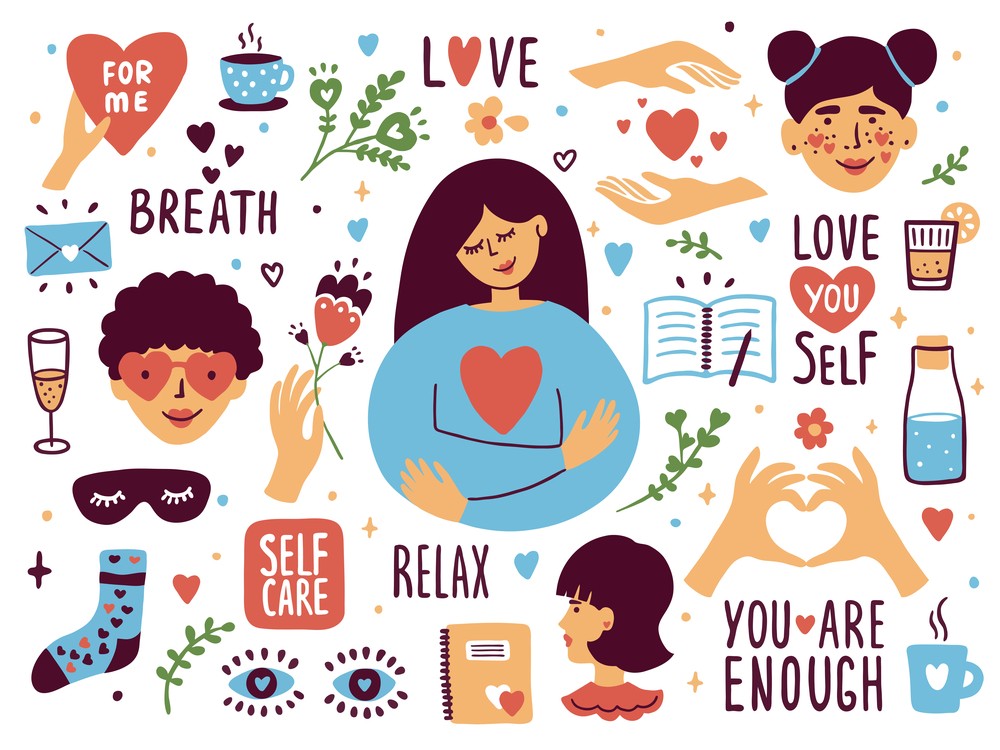 Interview Tips for Candidates with Depression
Interview Tips for Candidates with Depression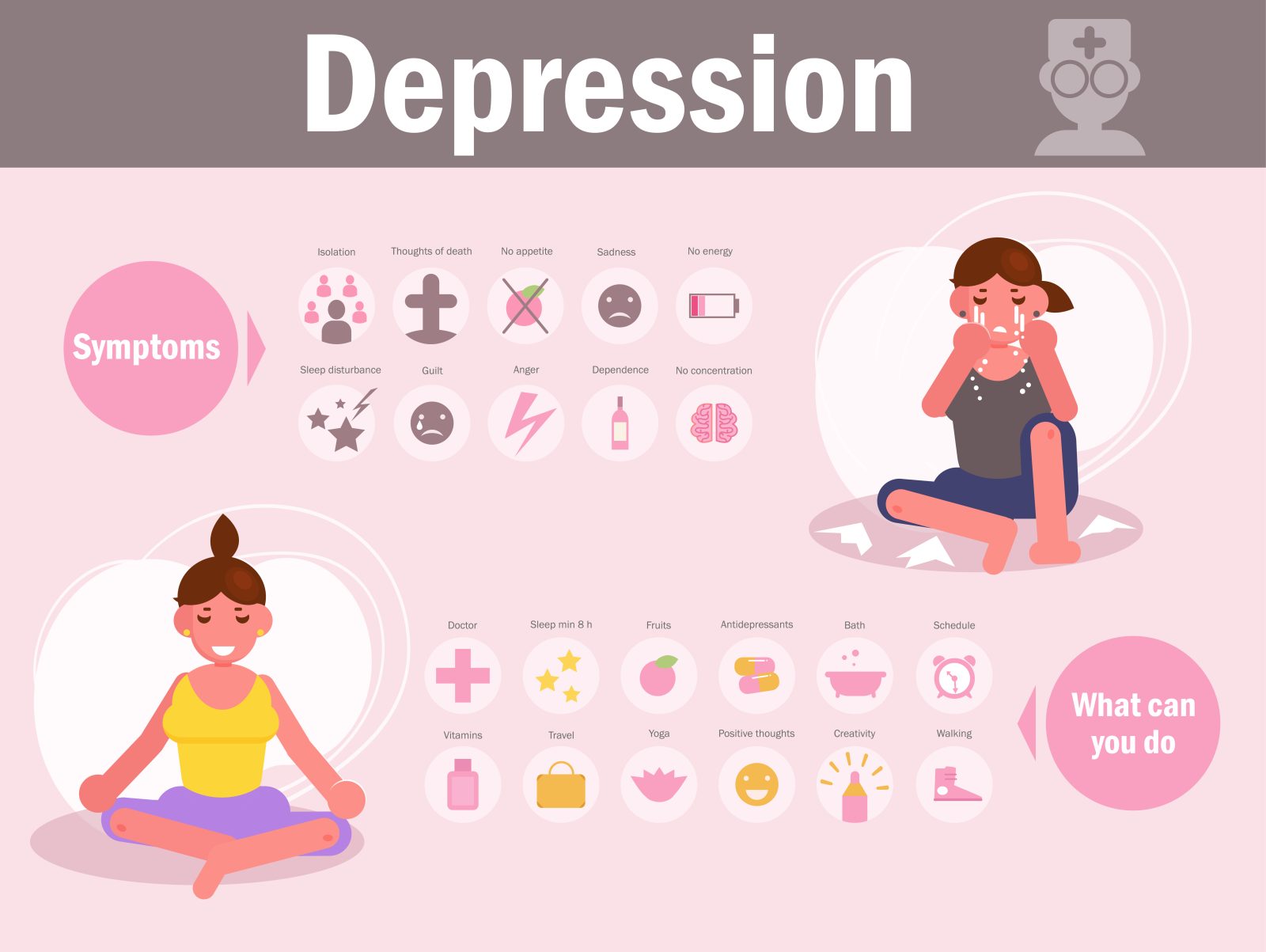 Managing Depression in the Workplace
Managing Depression in the Workplace Benefits of Work for People with Depression
Benefits of Work for People with Depression
